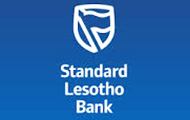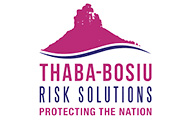Our goal is to provide robust social support services to prevent family child separation
Family Based Care (FBC)
SOS Children’s Villages is well known for pioneering the unique Family Based Care (FBC) model that provides a holistic physical, emotional, spiritual, mental/cognitive child development needs for children who have completely lost parental care in collaboration with the existing community based structures across the locations.
Under the care of an ‘SOS Mother’, children 0-8 years are carefully assessed and admitted within SOS Children’s family home that provides them with a sense of belonging. By the age of 14 years, the children are transferred into the youth homes where their life skills are further developed through trainings (workshops) and mentorship.This enables them to become confident and self-reliant so that they can attain their full potential and achieve their childhood dreams by age of 23 upon exiting our care. However, SOS considers an individual child’s development circumstances before they can exit.
THE SOS FAMILY STRENGTHENING MODEL (FSP)
The model follows a development approach which goes beyond provision of essential services, and recognizes the potential of children, their families and communities moving towards self-sufficiency. The goal of the Family Strengthening Programs (FSP) is to provide robust social support services to prevent family child separation and ensure those families where children have been reintegrated are equipped with the skills, child- care strategies to overcome any future hardships, and successfully stay together.
Since its implementation in 2004, FSP has helped hundreds of families and thousands of children in the areas around Maseru district: Lithabaneng, and expanding to Abia and Mauteng (Ha Sanaha) this year. In Quthing FSP covers Qomoqomong and Lehlabela Councils. We have equipped women with skills to propel them to success in poultry farming, hair-dressing and other relevant market related business ideas close to their passion.
MASERU SOS CHILDRENS' VILLAGE
QUTHING SOS CHILDRENS' VILLAGE
Youth Programs
Once they reach a stage of maturity, children move to a youth facility, where they experience greater independence, closely guided by trained youth leaders. The youth leaders hold workshops and invite trained professionals to educate the children on topics like drug and alcohol abuse, career guidance, and other Behamiral change communication issues.
Furthermore, the youth are enrolled in secondary schools in the community to help them network, interact and learn from their peers.This provides a sound preparation for their eventual departure from our care and an independent life.
Advocacy
SOS Children’s Village Lesotho believes that ‘No child should grow up alone’. SOS Children’s Village in partnership with Government of Lesotho, especially the Ministry of Social Welfare advocates for the rights of vulnerable children in accordance with the United Nations Convention on the Rights of the Child (UNCRC) and African Charter on the Rights and Welfare of the Child (ACRWC).
Gender Mainstreaming
SOS Children’s Villages implements a Social Inclusion Policy that promotes gender equality. Our FSP empowers women by holding workshops and assisting them to become financially independent by way of being involved in a diversified business
ventures: poultry farming, hair dressing, Kiosks, businesses and many more. With funding from Switzerland and Kinderdof International, SOS Lesotho has enabled women to achieve equal opportunities and reduced gender disparities.
Education
The SOS Hermann Gmeiner Primary school offers a modern educational programme for up to 490 children from the children’s village compounds and the neighbouring community. Practical subjects such as Home Economics, Agriculture and Art & Crafts are emphasized. A library facility is also included in this project.
It is not just about academics but also about participating in cultural activities. They compete with a number of community schools on various extracurricular activities including, football, volleyball, handball, and athletics. They also participate in community service activities including hospital visitations, Girl Guides workshops and community services such as cleaning. This teaches them to become responsible members of the community. The Kindergarten provides pre-school education to 125 children from the village and the neighbouring community. The emphasis on infant’s education is to learn through play.











